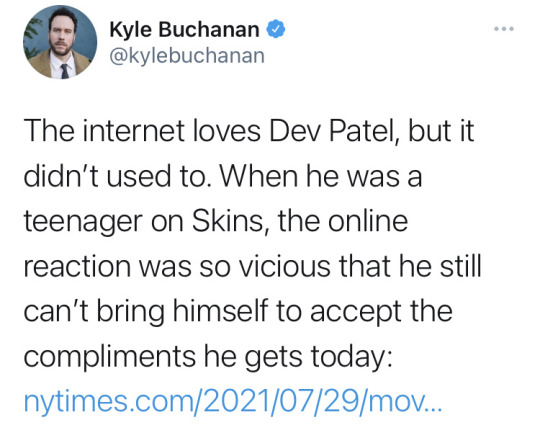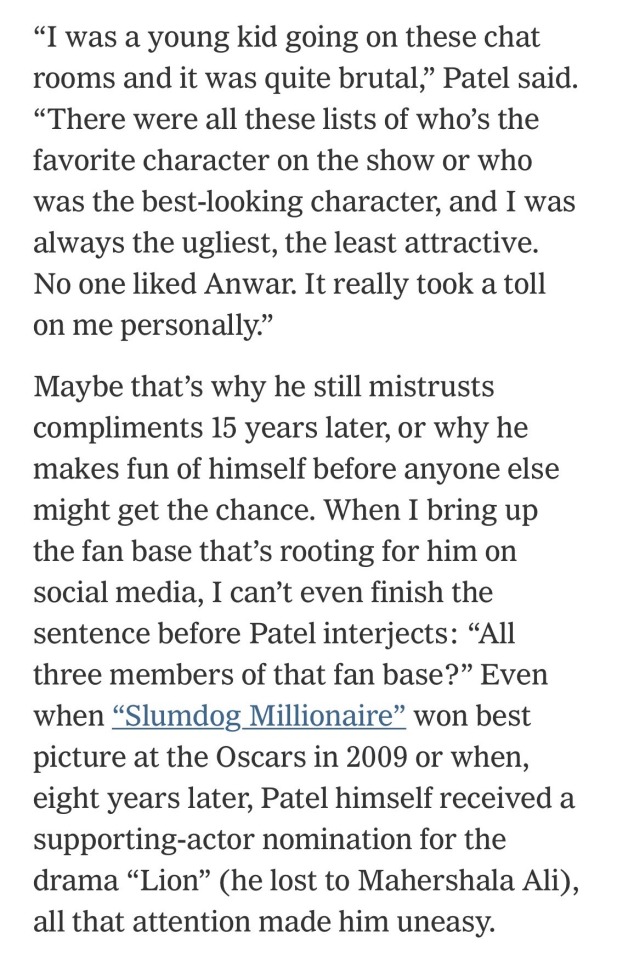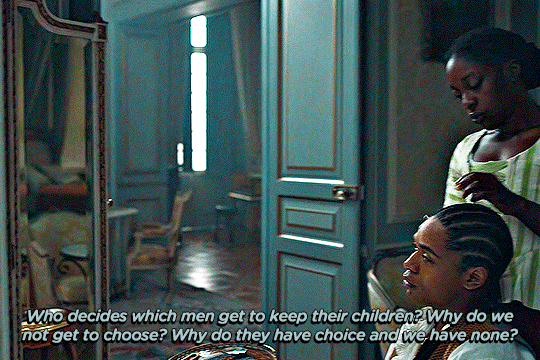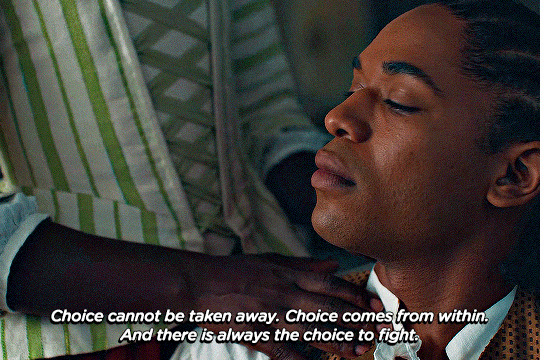Photo
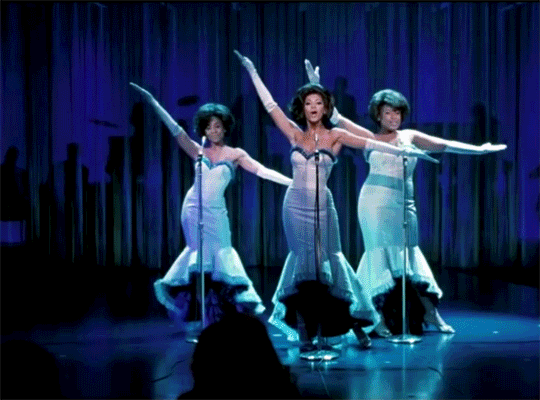
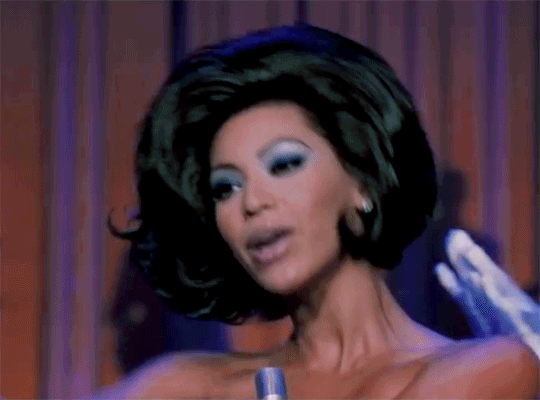
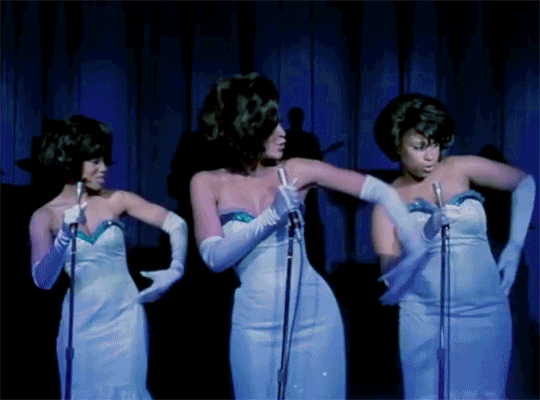

♫ We’re your dreamgirls, dreamgirls will never you no, no and you’ve got to do is dream,baby… we’ll be there ♫
DREAMGIRLS (2006) dir. Bill Condon
281 notes
·
View notes
Text
Good fucking grief!
Every time I hear about the twilight books the racism gets worse like apparently these are all things that happen:
The native characters are repeatedly described as being red skinned by Meyer
Edward considers massacring the Quileute people for no fucking reason
Bella witnesses Jacob be treated badly by the white vampires, knows it, and does absolutely nothing to stick up for her “friend”
Alice gives Jacob a dog bowl with food in it
Carlisle operates on Jacob without his permission and takes his blood and is interested in essentially studying/experimenting on him
Jasper calls (16 year old) Jacob a dog the first time he meets him
Imprinting on babies is apparently not uncommon for the werewolves and Jacob regularly would go to playgrounds to search for child imprintees
Bella is frightened by Zafrina upon seeing her for no reason other than that shes not white and describes her as the most uncivilized vampire shes ever seen
Quileute beliefs and Native spirituality in general is repeatedly mocked and called “lies for entertainment”
And that’s not even a full fucking list like God I hate stephanie meyer
1K notes
·
View notes
Text
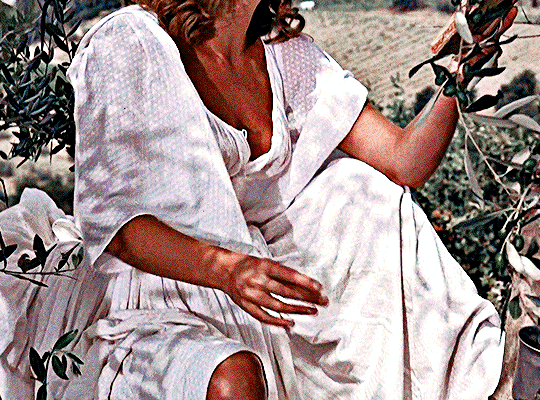
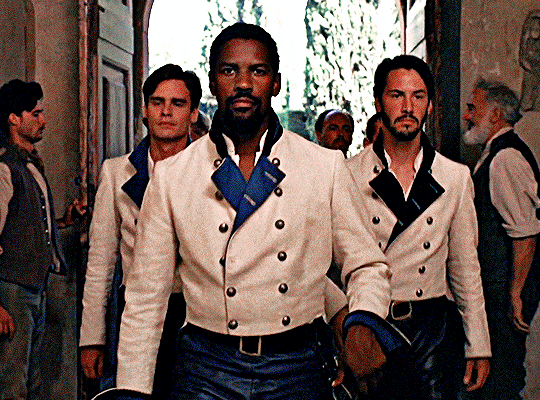

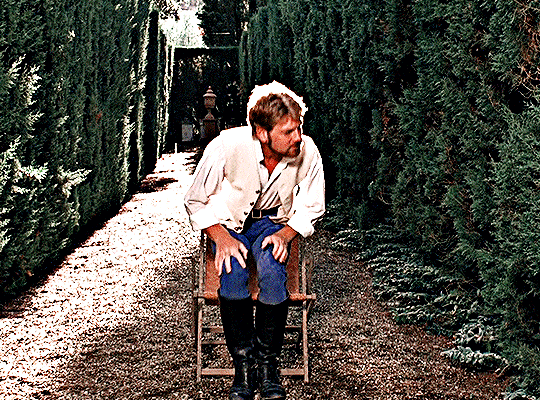

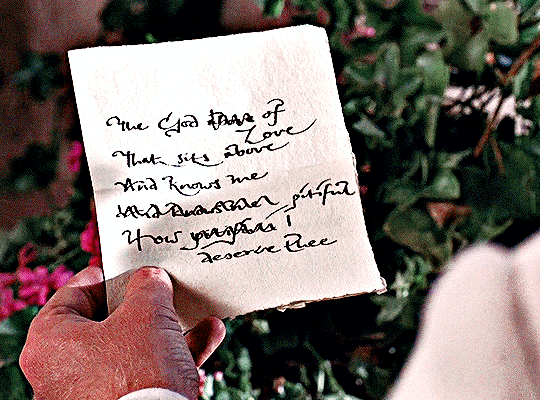
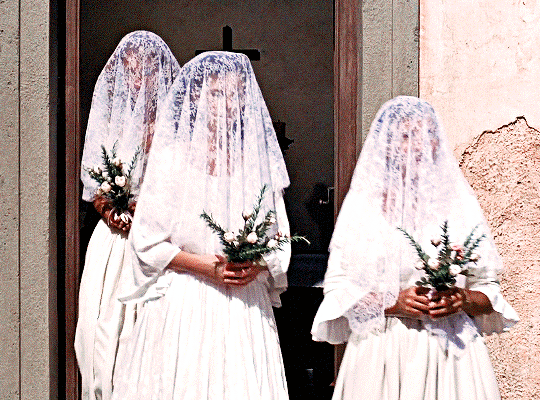

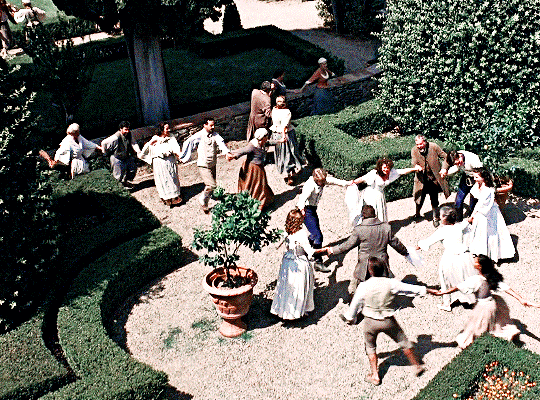
Film & TV I Think About A Lot » Much Ado About Nothing (1993) dir. Kenneth Branagh
Sigh no more, ladies, sigh no more.
Men were deceivers ever,
One foot in sea, and one on shore,
To one thing constant never.
Then sigh notso, but let them go
1K notes
·
View notes
Text
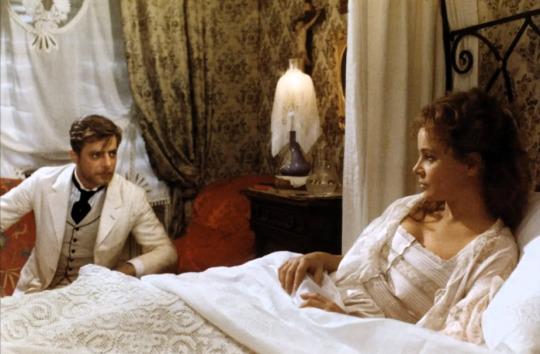
Giancarlo Giannini-Laura Antonelli "El inocente" (L´innocente) 1976, de Luchino Visconti.
40 notes
·
View notes
Text
32K notes
·
View notes
Text
Time Period for "DANIEL DERONDA"
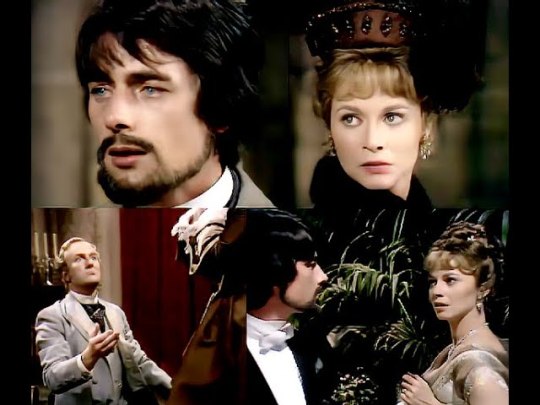
Recently, I discovered that the BBC had aired two adaptations of George Eliot's 1876 novel, "Daniel Deronda". One was a four-part miniseries that aired in 2002 and starred Hugh Dancy and Romola Garai. The lesser known production had been a six-part miniseries that aired in 1970 and starred John Nolan and Martha Henry.
The ironic thing is that both adaptations were set during the early-to-mid 1870s. Yes, I know that the novel had been published in 1876. But . . . Eliot's novel was set during the mid-1860s - 1864 to 1866/67. Didn't the producers of both miniseries realized this when they were made?
#daniel deronda#george eliot#daniel deronda 1970#john nolan#martha henry#daniel deronda 2002#romola garai#hugh dancy#time period#costume designs#period drama#period dramas#costume drama#bbc
2 notes
·
View notes
Text
"But still, Michael had his son taken and Jack was just like “Eventually we’ll get Walt back, probably” which is not exactly comforting for a father who had his son kidnapped"
My family and I just finished watching Season Two. We were all appalled at how the Oceanic castaways seemed indifferent to Walt's kidnapping. And I wasn't that happy by how they had dismissed Claire after failing to find her.
I hate that Michael on Lost is such a hated character, when I watched the show in college I loved Michael and was so sad to see him written off the show
I love a morally gray character whose morality is tied to a person and they will do anything for that specific person, especially when that person is not a romantic partner. Michael was a father who watched his ex slowly pull his son further away until Walt didn’t know him at all, and once he has him back he will stop at nothing to get to him and take care of him
I love a parent whose arc is burning everything down for their kid and from Michael’s perspective the characters kind of deserved what he did. Libby and Ana Lucia specifically did nothing wrong but the camp as a whole just accepted Walt being kidnapped and just put rescuing him on the background
And to be fair, it’s not just a Walt thing, Claire also was kidnapped and they only got her back because Rousseau helped her escape, they didn’t exactly storm the castle for her either. But still, Michael had his son taken and Jack was just like “Eventually we’ll get Walt back, probably” which is not exactly comforting for a father who had his son kidnapped
I know the actor for Walt was aging too fast for the show and they wanted to write him off but the actor for Michael, Harold Perrineau of Mercutio fame, was such a good actor and given it’s a magic island I feel like they could have found a way to explain his rapid aging and keep them both around
Anyway I love Michael, he does not deserve to be hated, he was such a well written character and it bugs me that he’s still remembered as one of the most hated characters on the show for doing things that made him very interesting and dynamic
27 notes
·
View notes
Text
"BLEAK HOUSE" (1985) Review
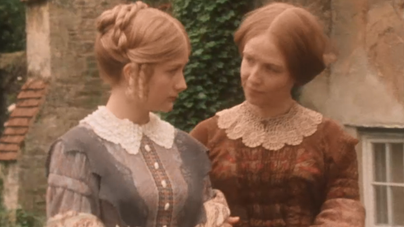
"BLEAK HOUSE" (1985) Review
In less than I year, I have developed this fascination with the works of Charles Dickens. How did this come about? I do not know. I have seen previous Dickens movie and television adaptations in the past. But ever since last year, I have been viewing these adaptations with a vengeance. And one of them turned out to be "BLEAK HOUSE", the 1985 adaptation of Dickens' 1852-53 novel.
Adapted by Arthur Hopcraft, this eight-episode miniseries conveyed the affects of Jarndyce v Jardyce, a long-running legal probate case involving the existence of more than one will. The heirs and their descendants have been waiting decades for the court to determine the legal will, for the sake of a large inheritance. Among those affected by the Jarndyce v Jardyce case are:
*John Jarndyce - a wealthy English landowner, who happens to be the proprietor of the estate, Bleak House. Jarndyce had inherited it from his uncle Tom Jarndyce, who had went mad waiting for a verdict on the case before committing suicide.
*Richard Carstones - Tom Jarndyce's grandson and John Jarndyce's cousin, who also became one of the latter's legal wards, and a potential beneficiary of the Jarndyce v Jardyce case.
*Ada Clare - Tom Jarndyce's granddaughter and Mr. Jarndyce's cousin, who also became one of his legal wards, and a potential beneficiary of the Jarndyce v Jardyce case. She and Richard, also cousins, became romantically involved.
*Esther Summerson - one of the novel's main characters and orphan, who became Mr. Jarndyce's ward following the death of her previous guardian, Miss Barbury, who had also been her biological aunt. She joined the Bleak House household as Ada's companion and Mr. Jarndyce's housekeeper after he became the guardian of Richard and Ada.
*Honoria, Lady Dedlock - the wife of baronet Sir Leicester Dedlock and a beneficiary of the Jarndyce v Jardyce case. She is also the younger sister of Miss Barbury and Esther's illegitimate mother.
*Captain John Hawdon aka Nemo - a former British Army officer, who became an impoverished law writer and drug addict. He is also Lady Dedlock's former lover and Esther's illegitimate father. His penmanship on one of the Jarndyce v Jardyce affidavit attracts Lady Dedlock's attention.
*Mr. Bill Tulkinghorn - Sir Leicester's ruthless lawyer, who noticed Lady Dedlock's reaction to the affidavit. This leads him to investigate her past and possible connection to Hawdon aka "Nemo".
*Miss Flite - An elderly woman living in London, whose family had been destroyed by a long-running Chancery case similar to Jarndyce v Jarndyce. This has led her to develop an obsessive fascination with Chancery cases, especially the main one featured in this story. She quickly befriended Esther, Richard, Ada and Mr. Jarndyce.
As one can see, these characters represented plot arcs that connect to the Jarndyce v Jarndyce case. As one of the beneficiaries of the Jarndyce case, Richard becomes obsessed with the verdict. He seemed more interested in depending upon the Jarndyce verdict to provide him with an income rather than pursue a profession. This obsession eventually led to a clash between and Mr. Jarndyce, who has tried to warn him not to get involved with the case. Another clash formed between Lady Dedlock and Mr. Tulkinghorn, due to his determination to find proof of her past with Nemo and the conception of their child. A clash that proved to create even more damaging for a good number of people, than the one between Mr. Jarndyce and Richard. In the midst of all this stood Esther, who served as an emotional blanket for several characters - especially the inhabitants at Bleak House, a potential romantic figure for three men (ironic for a woman who was not supposed to be a great beauty), and the center of the Lady Dedlock-Nemo scandal.
For years, 1985's "BLEAK HOUSE" had been viewed as the superior adaptation of Dickens' novel. The first novel aired back in 1959. But a third television adaptation that aired in 2005 had managed to overshadow this second adaptation's reputation. But this is not about comparing the three adaptations. I am focusing only the 1985 miniseries. If I might be blunt, I believe screenwriter Arthur Hopcraft and director Ross Devenish created one of the better Charles Dickens I have personally seen. Granted, one might use the source material - the 1952-53 novel - as the reason behind the miniseries' top quality. But I have seen my share of poor adaptations of excellent source material . . . and excellent adaptations of poor or mediocre novels and plays. And I would find this excuse too simply to swallow. Hopcraft and Devenish could have easily created a poor or mediocre adaptation of the novel. Fortunately, I believe they had managed to avoid the latter.
With eight episodes, Hopcraft and Devenish did an excellent job in conveying Dickens' exploration into the chaos of the legal landscape in 19th century Britain, especially cases involving the Chancery courts. One might consider the longevity of Jarndyce v Jarndyce rather exaggerated. However, I speak from personal experience that an extended length of time in such a case is more than possible. But what I thought the effect of Jarndyce v Jarndyce and similar cases in Dickens' story seemed very interesting. In Richard Carstone's case, I suspect his own hubris and upbringing had allowed the case to have such a toxic effect upon him. He had been raised as a gentleman. Which meant he was not expected to work for a living. But since he did not possess a fortune or an estate - like Mr. Jarndyce - Richard never lost hope that the court would rule the Jarndyce v Jarndyce case in his favor, allowing him to inherit a great deal of money. Although it took another case to send Miss Flyte mentally around the bend, I found it interesting that her obsession with Chancery cases led her to attach her interest to the Jarndyce case beneficiaries.
The Jarndyce case also produce a group of leeches in the forms of attorneys like Mr. Tulkinghorn and his obsession with assuming control over the Dedlocks and Mr. Vholes, who had sucked a great deal of money from Richard in exchange for his legal services. The series also featured the vicious moneylender Mr. Smallweed, who helped Mr. Tulkinghorn in the latter's campaign against Lady Dedlock; and Mr. Jarndyce's "friend", Harold Skimpole, who had not only encouraged Richard to pursue a greater interest in the Jarndyce case, but also had accepted a "commission" from Vholes to recruit the young man as a client. Would I regard William Guppy as a leech? Sometimes. I had noticed that one particular story arc was missing - namely the story arc regarding the philanthropist Mrs. Jellyby, her daughter and Esther's friend, Caddy and the Turveydrop family. This did not bother me, for I have never been a fan of that particular arc.
However, I also noticed that "BLEAK HOUSE" featured a few moments in which important plot points had been revealed through dialogue or shown after the fact. Audiences never saw Skimpole convince Richard to hire Mr. Vholes. Instead, Mr. Jarndyce had revealed this incident after it happened. The whole scenario regarding Dr. Allan Woodcock being a survivor of a shipwreck was handled as a past event revealed by the good doctor himself. Hopcraft's script never stretched it out in the same manner as Dickens' novel or the 2005 miniseries. Audiences never saw George Rouncewell's release from jail, for which he had been incarcerated for murder. Instead, Episode Seven began with George in jail and later, near the end, found him serving as Sir Leicester's valet without any information on how that came about.
"BLEAK HOUSE" featured a few other writing and direction decisions by Hopcraft and Devenish that I found . . . well, questionable. Why did the pair solely focused on Lady Dedlock in the series' penultimate episode and Richard and the Jarndyce v Jarndyce case in the final one? Would it have been so difficult for them to switch back and forth between the two arcs in those final episodes? I found Inspector Bucket's resolution to the story's murder mystery rather rushed. I would have liked to see Bucket eliminate suspects before solving the case. In Bucket's final scene with the killer, Hopcraft left out that moment from the novel when the latter had the last scathing word on British society, leaving the police detective speechless. This erasure dimmed the impact of Dickens' message and made the killer even more of a caricature. I had some issues with how Devenish directed certain performances. How can I put this? I found them a bit theatrical.
I have one last issue - namely Kenneth MacMillan's cinematography. I realize that in "BLEAK HOUSE", fog represented institutional oppression and human confusion and misery in society. Unfortunately, I feel that MacMillan may have been heavy-handed in utilizing this symbol in the series. It is bad enough that photography featured a fuzzy element that seemed popular in many period productions in the 1970s. But thanks to MacMillan's use of fog in the story, there were many moment in which I could barely see a damn thing. And I found that irritating.
Aside from a few quibbles, I had no real issues with the performances featured in "BLEAK HOUSE". One of those quibbles proved to be the performances for some of the secondary cast members. How can I say this? The exaggerated and wooden performances for some of the cast members brought back memories of some of the minor actors' bad performances in 1982 miniseries, "THE BLUE AND THE GRAY". I must admit that I did not care for Pamela Merrick's portrayal of Lady Dedlock's French maid, Madame Hortense. Her performance bordered and then surpassed the lines of caricature - as some British actors/actresses tend to do. Charlie Drake's portrayal of the moneylender Smallweed tend to waver between a pretty solid performance and pure caricature. Although there were moments when I found her portrayal of the eccentric Miss Flyte a bit hammy, I must admit that Sylvia Coleridge gave a well-done performance. Chris Pitt's performance as Jo, the crossing sweeper boy struck me as very poignant. Yet, at the same time, he seemed so passive that at times, I found it difficult to believe he had survived on the streets on his own, for so long. Jonathan Moore, whom I had remembered from the 1988 television movie, "JACK THE RIPPER"; did an excellent job of conveying the ambitious and self-interested nature of law clerk William Guppy. However, his portrayal of Guppy seemed to lack the character's comedic nature. Denholm Elliot gave a very interesting performance as Esther, Richard and Ada's guardian, John Jarndyce. On one level, I found his portrayal of the kind-hearted Mr. Jarndyce as first-rate. Excellent. But there were moments, including the character's famous quote following Jo's death, when Elliott's Mr. Jarndyce seemed to resemble one of those "angry young men" characters from a John Osbourne play. I found those moments very odd.
However, there were performances that did not leave me scratching my head. Colin Jeavons and Anne Reid gave very competent performances as the grasping solicitor Mr. Vholes and George Rouncewell's close friend Mrs. Bagnet, respectively. Ironically, Jeavons had portrayed Richard Carstone in the 1959 adaptation of "Bleak House" and Reid had portrayed Mrs. Rouncewell in the 2005 television adaptation. Both Suzanne Burden and Lucy Hornak gave solid performances as Esther Summerson and Ada Clare. And yet, both actresses managed to rise to the occasion with some brilliant moments. Burden's moment came, following Esther's realization that she had survived the smallpox. As for Hornak, she gave an excellent performance during Ada's soliloquy about her love's growing obsession with the Jarndyce case. Brian Deacon gave a passionate performance as Dr. Allan Woodcourt, the penniless doctor in love with Esther. Ian Hogg gave a very solid, yet commanding performance as Inspector Bucket. I really enjoyed Sam Kelly's warm portrayal of the law-stationer, Mr. Snagsby. Bernard Hepton gave one of the most colorful performances of his career as the alcoholic rag and bone shopkeeper, Krook. Dave King gave a very solid performance as the loyal, yet intimidating and conservative former Army sergeant George Rouncewell. I found George Sewell's performance as Sergeant Rouncewell's older brother, the wealthy Mr. Rouncewell not only entertaining, but very memorable. I thought Robin Bailey did an excellent job portrayed the haughty and proud Sir Leicester Dedlock.
But there were four performances that really impressed me. One came from Philip Franks, who did an excellent job of conveying Richard Carstone's emotional journey from John Jarndyce's warm and friendly young man, to the more embittered one, obsessed with the Jarndyce case. T.P. McKenna gave a delicious performance as Mr. Jarndyce's self-involved friend, Harold Skimpole, who proved to be quite the emotional (and financial) vampire. I thought Peter Vaughan was superb as the Dedlocks' sinister lawyer, Mr. Tulkinghorn. I was amazed by how Vaughn managed to combine the character's dedication to protecting his client Sir Leicester and his penchant for assuming control over others. If I had voted for the best performance featured in "BLEAK HOUSE", I would choose Diana Rigg's portrayal of the tragic Honoria, Lady Dedlock. I believe the actress gave a brilliant performance as the mysterious, yet complicated baronet's wife, whose cool demeanor hid a great deal of emotions and a personal secret. I am shocked and amazed that neither she, Vaughn, McKenna or Franks had ever received any accolades for their performances.
In fact, I am surprised that "BLEAK HOUSE" had only received BAFTA nominations (and won three) . . . and they were in the technical/arts category, aside for the Best Drama Series/Serial. No Primetime Emmy nominations, whatsoever. Was this eight-part miniseries the best adaptation of Charles Dickens' 1852-53 novel? I cannot answer that question. Granted, it had its flaws. But what television or movie production did not? But I cannot deny that "BLEAK HOUSE" was a first-rate miniseries that deserved more accolades than it had received, thanks to Arthur Hopcraft's screenplay, Ross Devenish's direction and an excellent cast led by Suzanne Burden, Denholm Elliott and Diana Rigg.
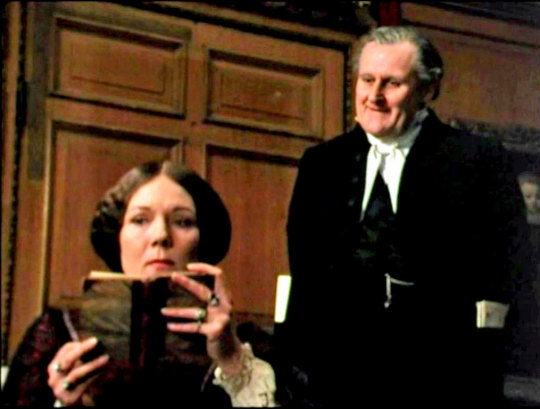
#charles dickens#bleak house#bleak house 1985#arthur hopcraft#ross devenish#suzanne burden#denholm elliott#diana rigg#peter vaughan#philip franks#lucy hornak#colin jeavons#anne reid#dave king#george sewell#robin bailey#brian deacon#chris pitt#sam kelly#ian hogg#jarndyce v. jarndyce#jonathan moore#pamela merrick#sylvia coleridge#charlie drake#bernard hepton#t.p. mckenna#victorian age#period drama#period dramas
4 notes
·
View notes
Photo
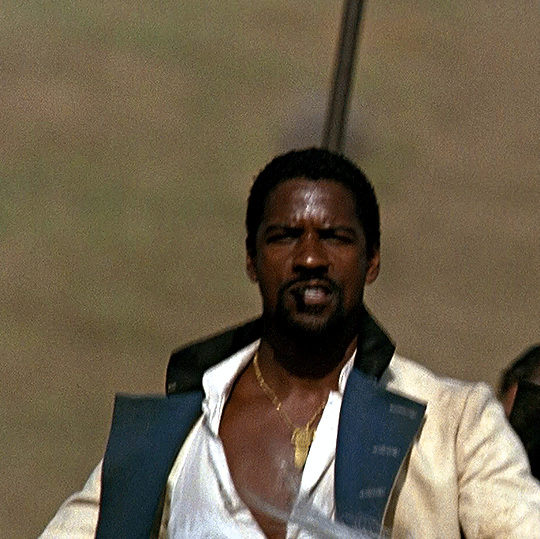
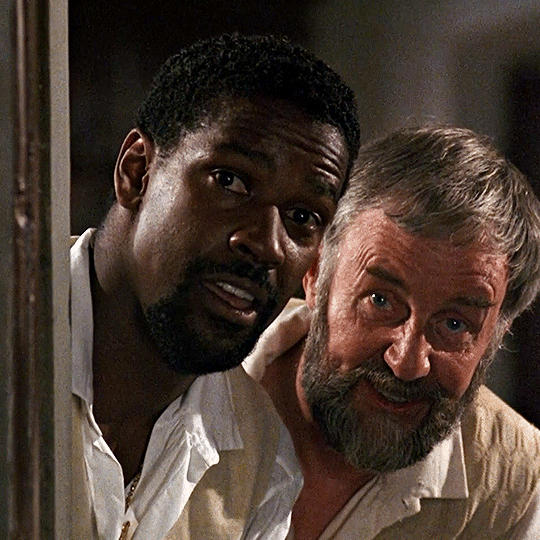
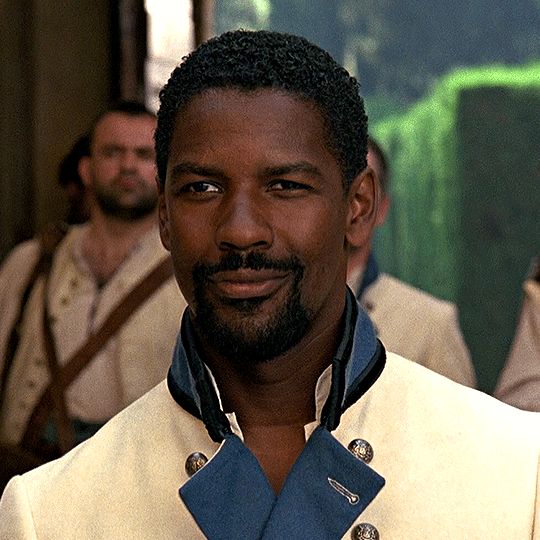
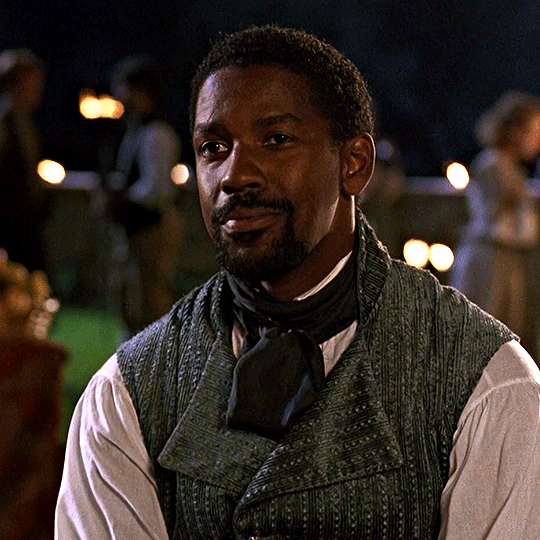
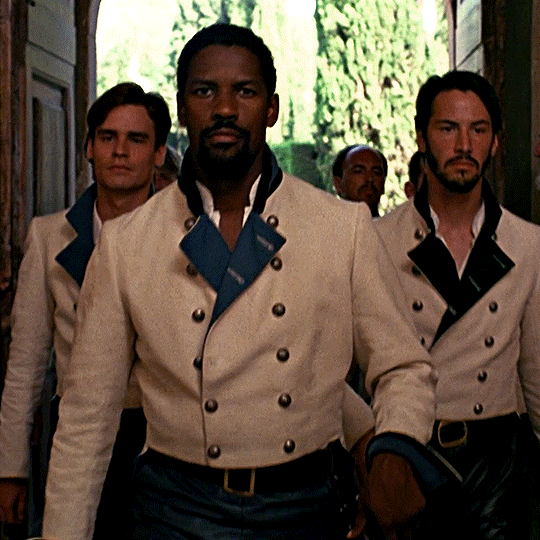
Denzel Washington as Don Pedro
Much Ado About Nothing (1993) dir. Kenneth Branagh
27K notes
·
View notes
Text
@binbrick . . . I didn't clearly understand the plot? How in the fuck did you come to that conclusion? Seriously? How? Kate had made it clear in "The Little Prince", "Whatever Happened, Happened" and "The Last Recruit" that she had claimed Aaron as her son for SELFISH reasons. How is it that despite Kate's words in those three episodes, I didn't understand the plot when it came to her and Aaron? And why in the fuck did you get pissed off at my comments about Kate's decision and the fandom's reaction to her decision?
I have never understood the "LOST" fandom and its need to romanticize Kate Austen's relationship with Aaron Littleton. All it did was make me dislike her. She had committed an act of kidnapping by claiming to be his biological mother, using Aaron as her personal emotional blanket and keeping him from his real grandmother for nearly three years.
And yet, many fans - to this day - continue to pretend that Kate had done nothing wrong. Why? Because she was the show's leading female character? If not, why? Why justify or romanticize child abduction?
10 notes
·
View notes
Text
No one wonder I had loathed that character.
"Alright Dave, how do Cad Bane and a handful of Bounty Hunters manage to take over the Galactic Senate Building? After all, we can assume it's one of the most highly guarded and secure buildings all the Republic, especially during a war of this scale. Do they manage to subtlety infiltrate through some vulnerability in the security or-"
Dave Filoni: "They walk in the front door."
"... Aren't there guards?"
Dave Filoni: "Eh, yeah, a few. But they all suck and get shot down easily, they barely even get a shot off. Lol, they don't even manage to sound an alarm or call for backup when a whole firefight brings out in the middle of Corusant."
"... Look I know he wears a cowboy hat like you, but surely we can come up with a more clever way for Cad Bane to succeed than him literally just walking through the front door?"
Dave Filoni: "Nah, this is good."
21 notes
·
View notes
Text
@binbrick . . . How about taking the trouble to learn if Claire had any family members, following their return to the States? Or quietly hand over Aaron to Carole Littleton after meeting her at Christian Shephard's funeral? You mean to say that none of you had even considered these options, instead of thinking it was a good idea for a criminal who was facing trial, to claim Aaron as her biological son? Considering how close Kate had come to being convicted in "Eggtown", what do you think would have happened to Aaron after that? Jack stepping forward and claiming to be Aaron's uncle? Then his and Kate's deception would have been exposed and perhaps Carole Littleton would have finally been able to claim her grandson (something that should have happened not long after their return to the States).
Why was it so fucking important for Kate to get away with her lie about Aaron? Because she was the show's leading lady?
I have never understood the "LOST" fandom and its need to romanticize Kate Austen's relationship with Aaron Littleton. All it did was make me dislike her. She had committed an act of kidnapping by claiming to be his biological mother, using Aaron as her personal emotional blanket and keeping him from his real grandmother for nearly three years.
And yet, many fans - to this day - continue to pretend that Kate had done nothing wrong. Why? Because she was the show's leading female character? If not, why? Why justify or romanticize child abduction?
10 notes
·
View notes
Text
And Cynthia Kirkpatrick?
Keeley Hawes characters I think would get along with each other:
Alex Drake and Lindsay Denton would I think have a rocky start and initially not like each other and be very distrustful of each other, but then go through a whole character arc together and end up completely ride or die and trusting the other above almost anyone else.
Louisa Durrell and Lizzie Hexam would get on famously I think. Lizzie never had a mother and her father sucks, so she'd be happy for Louisa to instantly all but adopt her, which she would of course. What self-respecting mother wouldn't be instantly charmed by this sweet sad girl.
Alex Drake would be both deeply sympathic and deeply admiring of Angela Harper, but Ange wouldn’t trust a cop who was suddenly super interested in her personal life as far as she could throw her, with good reason.
Oh I know Kitty Butler and Lady Agnes would be best friends. And perhaps more than friends. Who can say.
16 notes
·
View notes
Text
Overrated.
The ending of the new episode of Andor might have been one of the most riveting, most upsetting things while at the same time being one of the most important scenes, one of the moments stirring up the most anger and pain and, concomitantly, much goddamn HOPE in a way that is so plain and so unspoken at the same time; in a show that does all of this THE WHOLE time.
"How many guards on each level?"
"Never more than 12."
What a call to action. What a sentence of utter power, knowing what came before, knowing the context of this moment and characters.
Andor is excellent, groundbreaking TV relevant to every facet of our current very real-world life. Every episode delivers. I have long stopped judging this as something that should adhere to any "rules" of a Star Wars. And while I, as everyone else, can barely any more deal with the state of the world, and while I seek for an escape in what I watch and read and listen to in my evenings and free time, there are so many people - people like those characters depicted in Andor - who do not have the freedom, the luxury to choose. Engaging with at least this show (especially as my premise as star wars fan), singing my praise despite having nothing really to add to the conversation, is the least I can do when it is there, bringing up all those important and relevant themes, facets of a facist imperium and the layers of rebellion and privilege embedded within it, all those various perspectives and aspects, prepped and catered to my screen. And I cannot believe this website, known for being the most left-aligned big name social media out there, is SLEEPING ON IT. Why is almost every post and gif I see on this series below 1000 notes? Why is it not weekly trending on number 1? Heaven knows. (And so you know, this is not about elevating it by talking other more "classic" SW media dirty; people who follow me know how utterly crazy I was for Kenobi, and before that, Rebels, I enjoyed Clone Wars, Mandalorian, etc. THIS IS NOT ABOUT THAT). SHOW UP for this show, which is so plainly, incredibly & unfiltered anti-cop, anti-racist, anti-imperialistic, anti-facist and is somehow by unknown graces getting released on the capitalistic cash-grab Disney+ platform. Speak about it. Support it just by reblogging a gif, if nothing else.
1K notes
·
View notes
